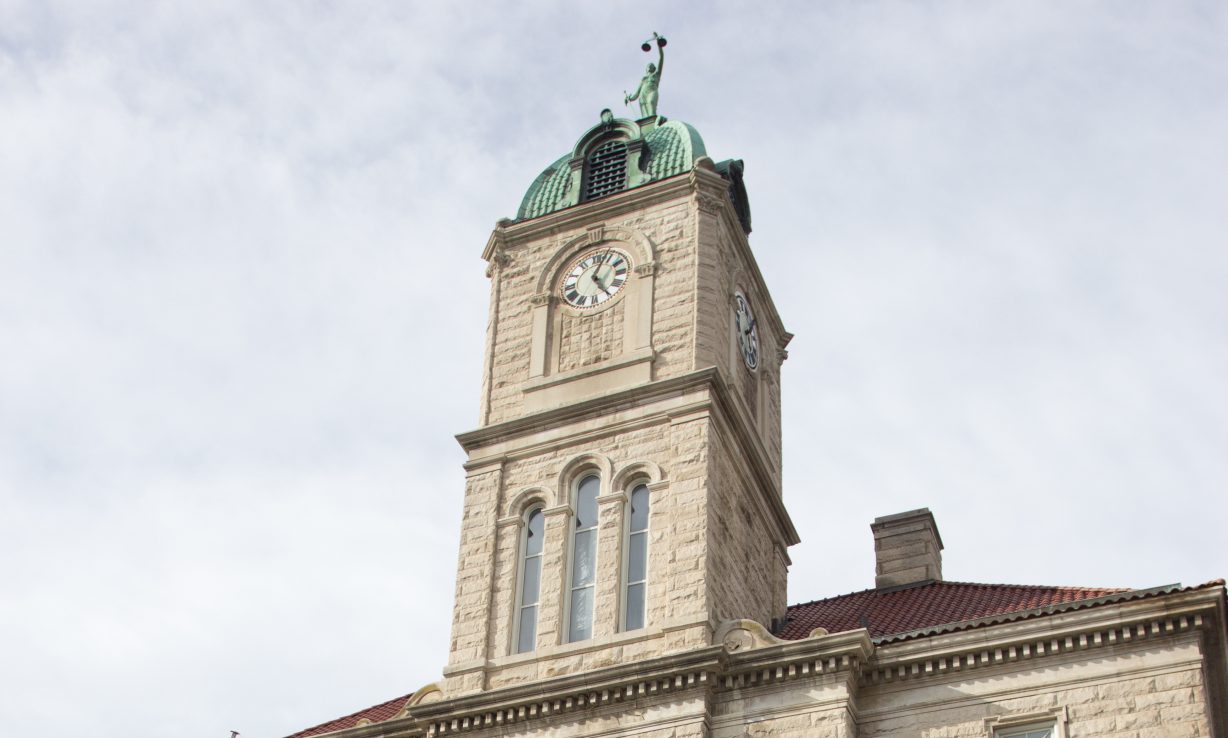By Randi B. Hagi, assistant editor
The Harrisonburg City Council on Tuesday approved adding $100,000 more than originally proposed to local organizations as part of the first reading of the city budget for Fiscal Year 2022.
The changes, which were first drafted as part of a May 6 work session, include $20,000 each for the Northeast Neighborhood Association and Virginia Cooperative Extension, both of which had applied for funding but not been included in the original proposed budget.
Director of Communications Michael Parks told The Citizen in an email that city staff are still looking at where the additional $100,000 could come from to keep the budget balanced. One option could include “dipping further into” backup funds that the city is required by the state to have in case of emergencies.
Also on Tuesday, the council voted unanimously to keep the real estate tax at the current rate of 86 cents per $100 of assessed value – but discussed the option of increasing it during the council’s next meeting, May 25.
The council had to take a vote Tuesday on the tax rate to comply with a technicality under Virginia legal code triggered by an increase in real estate tax revenue. This year’s tax reassessment resulted in a 2.9% increase because of the increase in property values. That increase will bring in $1.1 million more tax revenue this year than last. Legally, a public hearing must be held whenever a reassessment increases the total tax revenue by more than 1%.
So with Tuesday’s vote, the council essentially accepted the results of that reassessment, and City Attorney Chris Brown explained that the council could then amend the future real estate tax rate at the next meeting.
The real estate tax factors into the debate over the new high school because it’s a key funding source to cover the bond payments of the roughly $100 million project.
Several council members suggested a potential increase of four cents per $100 of assessed value during last week’s work session “as the first increase of a multi-year increase for the high school project,” Parks said in an email.
City Manager Eric Campbell had not proposed any tax rate increases in this year’s budget, and “staff does not feel any tax increase at this time is in the best interest of our residents and businesses still suffering from the pandemic’s impact,” Parks said.
The council also unanimously approved this fiscal year’s Community Development Block Grant, or CDBG, Action Plan, which distributes funds from the U.S. Department of Housing and Urban Development for communities to use on housing, quality of life, and economic projects that benefit low- and moderate-income people.
This year, the city received $533,000 in federal funds for the program. The largest portions of that are:
- $143,000 to build a sidewalk along Commerce Drive and part of Washington Street, and
- $140,000 towards debt owed by the Harrisonburg Redevelopment and Housing Authority for renovations done at the Harrison Heights residential complex.
Ande Banks, deputy city manager, said federal regulations limit the city to distributing, at most, 15% of the allocation to outside organizations. That 15%, which amounts to just under $80,000, is to be divided between the Suitcase Clinic, Meals on Wheels, The Arc of Harrisonburg and Rockingham, and Blue Ridge CASA for Children.
Gauging support for MMRJ next steps
At the end of the meeting, Mayor Deanna Reed announced the mayors and board chairs of the five jurisdictions that own Middle River Regional Jail — Harrisonburg, Staunton, Waynesboro and Rockingham and Augusta counties — had been meeting “to kind of discuss how we feel about the expansion and what can we actually support and not support.”
As of the jail authority board’s last meeting April 6, expansion plans appear to have stalled as a result of lagging support from the Harrisonburg and Waynesboro city councils.
Reed said she and the four other jurisdiction leaders have come up with three objectives dealing with “renovations that need to be done there — not expanding or adding more beds.” She announced she would speak with each city council member one-on-one to gauge support for those objectives.
Reed said the five jurisdictions are also looking into creating a commission to consider alternative programs to incarceration “to help support inmates that are in need or people who might need extra support in mental health or … drug recovery programs.”
Also at the meeting:
- The council heard a presentation from P. Thandi Hicks Harper, founder and president of the Maryland-based organization Youth Popular Culture Institute, Inc., on an upcoming event organized by Faces 4 Change Harrisonburg, a local initiative that aims to reduce youth substance abuse. Their virtual conference “Hip Hop 2 Prevent” will be held this Thursday and Friday, and registration is available on their website.
- The council unanimously approved a special event application for the 10th annual Valley 4th Run to be held on July 3.
- The council unanimously appointed Onesimo Baltazar Corona to the Rockingham-Harrisonburg Alcohol Safety Action Program Commission.
Editor’s note 11:03 a.m.: The article was edited to correctly characterize from which city fund the additional $100,000 for community contributions could come.
Journalism is changing, and that’s why The Citizen is here. We’re independent. We’re local. We pay our contributors, and the money you give goes directly to the reporting. No overhead. No printing costs. Just facts, stories and context. We’re also a proud member of the Virginia Press Association. Thanks for your support.

